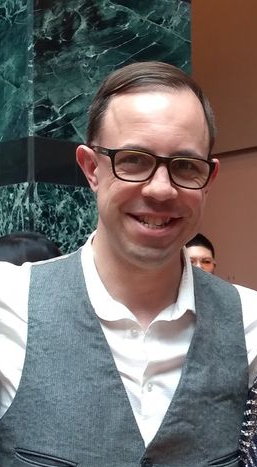By Alex Gregory
For a while, she was superhuman.
Hazel McCallion was a woman who defied explanation, even to those who knew her well. Born in Gaspé, Quebec, it’s unlikely that anyone thought that a small-town hockey player who didn’t have the financial resources to attend university would go on to become one of most enduring (and dare I say, mythic) Canadian politicians of the modern age.
How do you adequately describe Hazel’s accomplishments with the kind of respect they deserve. I knew her for nearly two decades, and even I barely scratched the surface of who she was or the kind of impact she had on the citizens of this city.
She worked on behalf too many organizations to count, had a hand in the formation of nearly every major institution in the city for over three decades, and showed up to so many events that the only logical way to explain it was to chalk it up to her being the Energizer Bunny, or having some kind of clone of herself so she could appear everywhere all at once.
12 straight terms as Mayor, encompassing 36 years in office. A champion for women’s hockey, international relief efforts, seniors’ support and innumerable community causes. A fierce advocate for good governance, who wasn’t afraid to give as good as she got, even to her harshest critics. A woman who took on more responsibility after leaving politics, serving as Chancellor with multiple post-secondary institutions, a key advisory role with Revera Inc., and too many board roles to count. She directly touched the lives of hundreds of thousands of people over her tenure.
Yet, this still doesn’t do justice to who she was. Anyone who knew her knew how passionate she was about promoting the city and its interest, and even more incredible to see what an impact she had on people.
The first time I met her was in June 2006, at a charity golf tournament at Braeben Golf Course that bore her name. At the end of the night, I was handing out parting gifts to the guests when Hazel sheepishly walked up to me after everyone had left, and asked for an “extra gift” to give to her neighbours. She seemed almost embarrassed to be asking about it. I told her that she was the Mayor, and she could whatever she wanted, which prompted a wry laugh from her.
It was that respect for others in the community that I saw in many events she attended over the years. She would make the biggest splash in the room, and do the most to rally for various causes, despite also being the shortest woman in the room.
Whether it was her neighbours in Streetsville, her colleagues and staff members at the City of Mississauga, or the average person on the street, she generally made the time . Nowhere was this more evident than on the “Mayor’s Hour,” a public-access show on Rogers TV where residents called in to ask questions, which she answered at length. There’s a reason why people were still calling her “Mayor”, even when she was years removed from office.
You had to see Hazel work in person to understand what kind of power she had over people. Politicians like John Tory and Justin Trudeau would turn into children being taught by their mother when they spoke to her. Business leaders, diplomats and even some of her harshest critics were eating out of the palm of her hand when they met her in-person. She could show up unannounced to an event and give a speech with no preparation, that would garner a standing ovation.
I owe much of who I am as a writer and a volunteer to Hazel’s style of leadership and her values. She made an effort to greet as many people as possible at events. She led by example, garnering respect from all sides of the political spectrum, even if she was diametrically opposed against others on key issues. She was a model of governance, not just in Canada, but across the world.
She also counted on the community to carry the torch for her after she was gone. The last time I saw her, at a Walk of Fame ceremony in Mississauga in late 2022, she had a reflective quality as she discussed how political engagement in the city had dipped as a result of the COVID-19 pandemic, and asked the “champions” of the city to do more to uplift young residents to get involved in politics.
Hazel was fiercely supportive of efforts to build communities, even wading into a debate over the future of the Ontario Greenbelt days before she died, via an open letter supporting the Ford government’s efforts to build more housing.
“I have worked in partnership with colleagues, and adversaries, wrestling with challenges, conflicts, differences of opinion and agendas, and together we found ways to accommodate families in homes, communities and cities that people wanted and do call home,” said McCallion.
Regardless of whether you agreed with her politics or not, you always knew where you stood with her, and you knew that she was always working for the betterment of the community and the city she called home. That was the Hazel I knew.

Alex Gregory has over 15 years of experience working with publishing companies and public relations firms within the Greater Toronto Area. Delivering proven results and demonstrable impact through print and digital publications, he brings his expertise as a journalist and applies it to effective grant writing.
Alex is also well-known in the Greater Toronto Area non-profit sector. With more than two decades of volunteer experience and a deep network of established community contacts, Alex Is pleased to help organizations to utilize their unique voices to achieve fundraising success, through effective proposal writing and advisory support. Alex resides in Mississauga, Ontario.

